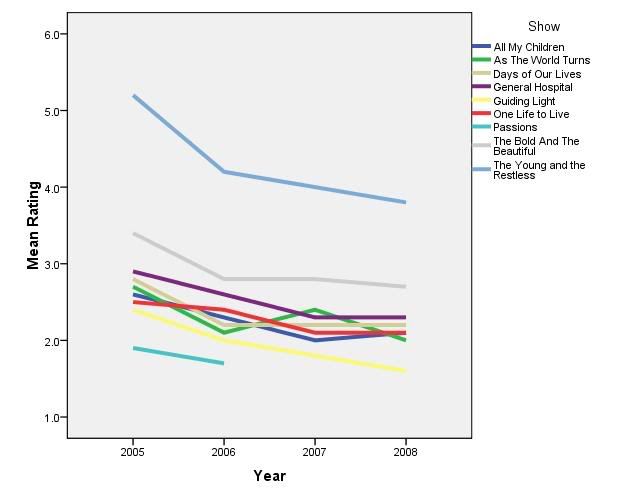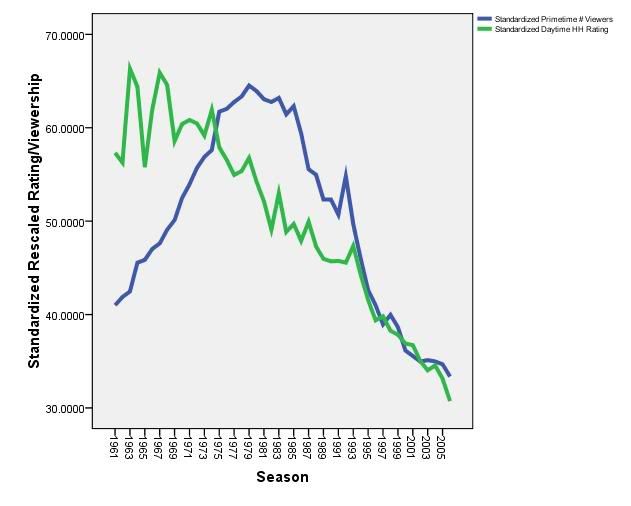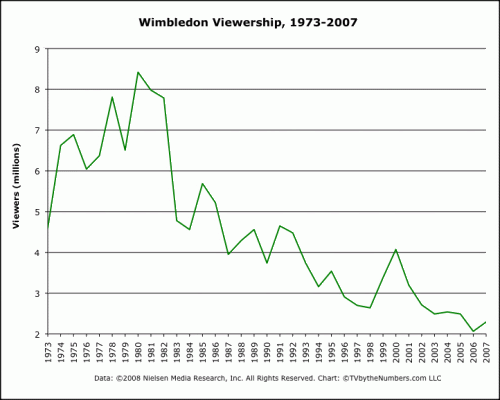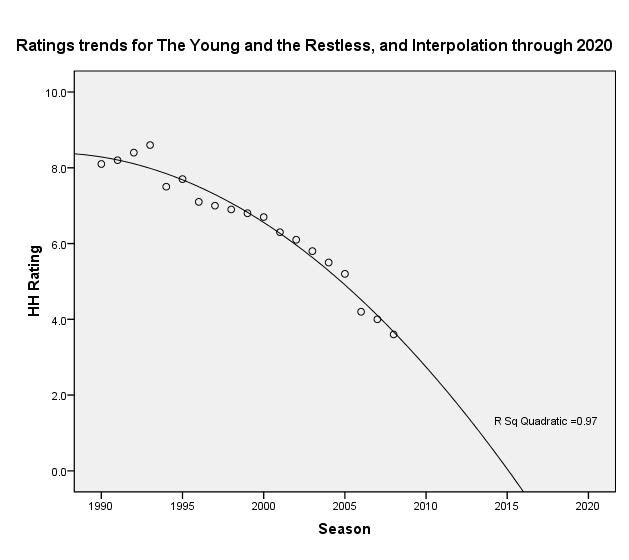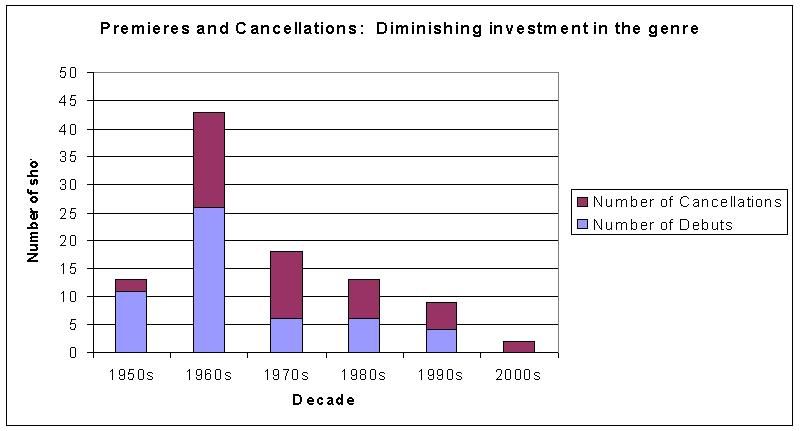


One of the reasons I'm not so disappointed about the apparently sunsetting of the daytime soap genre is because I think I have seen the future...and I love it.
This post was motivated by last night's episode of
Breaking Bad, which is (for my money) truly the best show on television right now. But more on that later....
===
When I was a child, primetime drama was all procedural, all episodic. Even long-running shows, like
Gunsmoke or
Bonanza, really had no continuing stories or themes. A guest star this week would likely never return to the show again...at least not playing the same character.
Marcus Welby, Owen Marshall, Columbo, Barnaby Jones, Mannix...on and on. There was a heavy dose of cop/lawyer/doctor shows, and they also seemed to retain no threads that ran through the series. Only the regular characters and their consistent reactions provided continuity to the shows.
Thus, for continuing, character-based, emotional drama or melodrama, daytime was
it.
===
I'm not being unique when I parrot the idea that
Hill Street Blues changed primetime drama forever in 1981. Suddenly, we had a show that -- on the face of it -- was another cop show. But embedded in it were continuing characters with narrative threads that extended over many episodes. Scenes were written simply for character and atmosphere (e.g., close-of-episode intimate moments between
Furillo and
Davenport).
The melodramatic serial clearly had bits of life in prime time (
Peyton Place being the most obvious 1960s exemplar), but serials were uncommon.
Dallas had debuted a few years earlier (1978), but it was not until it connected more fully with its soapy identity (melodramatic tales, episode-ending cliffhangers) that the show took off. "Who Shot JR?", in the summer of 1980, launched the birth/rebirth of the primetime soap.
Hill Street Blues would modulate that a year later, when it provided a less sensationalistic, more thought-provoking, more cinematic template for the serial a year later.
From these two auspicious beginnings, the primetime landscape was transformed. On the melodrama side, we had
Flamingo Road, Knot's Landing, Falcon Crest, Dynasty, and later
90210 and
Melrose Place, and these days
Gossip Girl and ... On the serious adult drama, we got
St. Elsewhere,
Thirtysomething, and
LA Law and, later,
ER, and still later, the
Sopranos and
Six Feet Under. As I write this, three unconventional serials (
24, Lost, Heroes) are at least moderate TV successes, and both are noteworthy because they curry favor with a large male audience.
The serial has become so common place that even the primetime procedurals (
NCIS, CSI, Law and Order) have small snippets of continuing narrative and character history that recurs throughout the shows, making the characters more relatable and themselves (outside of the situation of the week) more interesting to follow.
===
No better exemplar of the wholesale transformation of primetime can be seen than in the difference between
Star Trek and
Star Trek: The Next Generation.
Star Trek was a complete episodic. Never once did
Kirk, for example, remember a girl he met in Season One when he encountered a similar girl in Season Three. It just didn't happen. By the time
Captain Picard and gang came along, all kinds of multi-season arcs were in play, including the
Crusher-Picard romance, the
Troi-Riker-Worf triangle, Worf's troubled family history,
Data's enduring quest to become a "real boy" (i.e., have an emotion chip). The serial had become commonplace.
I have argued elsewhere in this blog that what the serial uniquely does is create a sense of home. Familiar characters, familiar situations, narrative throughlines that (like any good novel) make you want to read the next chapter. Serials make you want to come back, to see how it will turn out. (In contrast, procedurals make you come back to see how they'll solve the puzzle "this time"...but there is nothing in the story itself that compels your return). I cannot wait to see what will happen to Nora and her children on Brothers and Sisters. I simply cannot wait.
So, we have come to place where you don't just have to look to daytime for that "sense of home". Instead, you can find it in primetime...all over the dial.
===
Now, as we are the cusp of the demise of broadcast TV (in favor of some kind of more pay-as-you go cable/internet model), it seems that cable television has appropriated the serial and made some delicious motivdations of its own.
HBO and
Showtime have been playing with serials for some time. But it is commonly held that the one-two punch of
HBO's The Sopranos and
Sex and the City really remade the serial for cable. Uncommon, envelope-pushing premises ("the domestic travails of a mobster and his consorts in New Jersey"; "the romantic travails of a fashionista/columnist and her girlfriends in the big city"), but with clear serial narrative elements. It was a grafting of the ordinary quotidien life onto words that we, the viewers, would never experience directly. Suddenly, the serial format let us live with these unusual, surprising characters and situations. We followed them, and vicariously joined them.
But
HBO (with
Six Feet Under and
Big Love and
Rome and
Deadwood and
John from Cincinnati), and later
Showtime (with
Weeds and
Queer as Folk and the
Tudors and the
L-Word) effected another transformation: Serials were no longer meat-and-potatoes...they had become confections--not filling, but satisfying.
There is nothing more "meat and potatoes" than a daily serving of soap opera. Day in and day out it's there. Not particularly special; indeed, the soap's very ordinariness, blended into the daily life of the housewife, meant that you could skip a day...and catch up again. Like a meal of staple foods, it gets you through the day, but you probably won't remember it next week.
What
HBO and
Showtime did was transform the serial into 10- or 13-week nuggets. Little appetizers that kept you breathlessly tuning in from week to week...and then they were gone. If the show was renewed, you might have to wait 39 weeks or longer for your next serving. Instead of the long hiatus breeding boredom and disconnection, the long breaks between seasons served to frustrate, tease...build a growing lust for fulfillment.
(In passing, I also note that
HBO and
Showtime have worked hard to build "appointment TV"...a fixed time, usually on Sunday nights, when you just have to watch the show live...you can't delay the next installment for another minute).
Of course, the
HBO model has been so successful, they've had a hard time topping it. And better yet, "basic cable" has stolen the methdology.
The Shield, Damages, Nip/Tuck, Rescue Me, Battlestar Galactica, Mad Men, Breaking Bad. Whole networks are now being built around these "nuggets". Come for the treat, and our promos will keep you coming back for other offerings.
===
Which leads me back to
Breaking Bad.
The premise is this: An embittered high school chemistry teacher,
Walter, who feels cheated by life, has been living just-at-his-means in a working class Albuquerque suburb with his wife and disabled son (
Walter Jr. -- one of the most attractive, engaging new young men on television today). In a drab house with olive-toned kitchen appliances, the "rut" of their daily lives is interrupted by the dual traumas of his wife's unexpected mid-life pregnancy, and his own terminal lung cancer diagnosis.
What to do? How to provide for his family after he is gone? (Walter seems to have little confidence that his wife and son will manage; he has control issues and seems to need to 'fix' the situation). The answer is "become a manufacturer of crystal meth". Walter pairs with one of his worst former pupils,
Jesse Pinkman (
Aaron Paul, who is a revelation).
As the series spins out, it compares favorably to the
Sopranos. We're plunged in a life of addicts and dealers and DEA agents...seedy and grim and violent...but the serial drama and the "ordinary" protagonists serve as our passport into this surprising and shocking world. The writers also creatively shift the rooting dynamics. Jesse Pinkman is an irresponsible stoner...but as time goes on, we see he is hurt by his failings, and that he has a good heart for children and ... even insects. Walter, on the other hand, the "noble" science teacher has serious issues of wounded pride, deceptiveness, and amorality. Who knew Jesse would turn out to be the good guy?
Like the best of the
HBO dramas, the unrelenting drama is leavened by humor, and there are dozens of laugh-out-loud moments in every episode. In addition, most episodes end with a breathtaking cliffhanger...one dare not miss the next episode.
===
One thing the
Sopranos and
Deadwood and
Lost and
Breaking Bad all share is that they stay with me. After the episode is done, I cannot stop thinking about them, cannot stop quoting key lines. The episodes compel re-viewing, to catch nuances one missed.
I cannot remember (outside of
Y&R these days) when a daytime soap last engaged me thus.
Maybe this is the level of investment and respect that the soap always deserved? Maybe the ending of the unsustainable daytime dinosaurs--deprived of their "specialness" by being so unrelentingly available, day after day--means that the actors and writers and characters get a deeper, more loving treatment? I'm still getting my "soap" fix, but in a very different way.
This is why I am optimistic. The serial is alive, well and ubiquitous. It has evolved into short-term gems that consume the imagination, and that satisfy the viewer long after the closing credits have rolled.









